18 Reasons Why Older Men Avoid Socializing
As men journey through life, the inclination to socialize can change, often leading them to prefer solitude or smaller circles.
Let’s explore 18 distinctive reasons why older men might choose to avoid social settings, each reflecting a unique perspective or experience.
1. He’s tired of surface-level conversations

Imagine being in a room filled with chatter that barely scratches the surface, a place where discussions hover around the weather and nothing more. Older men often crave depth and substance in their interactions, longing to exchange ideas and stories that resonate on a personal level.
The superficial exchanges that dominate most social gatherings can feel like an exercise in futility. It’s not that they don’t want to talk; it’s more about wanting meaningful conversations that explore emotions, history, and personal growth.
In a world obsessed with quick interactions, these men might search for connections that delve deeper, focusing on quality rather than quantity in social engagements. Their preference leans towards discussions that matter, bringing fulfillment rather than mere social obligation. This shift towards deeper connection can often mean fewer social interactions, but richer, more rewarding ones.
2. His trust circle has gotten smaller—and that’s on purpose
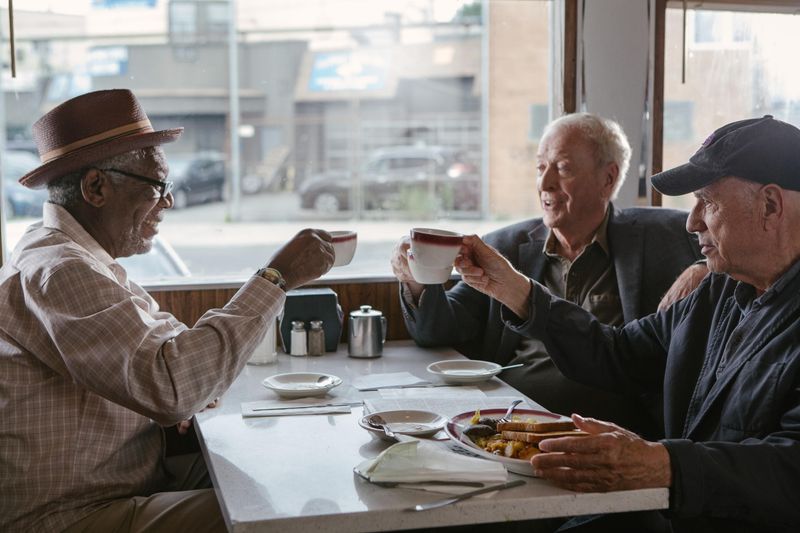
Trust is earned, and over the years, older men have learned this lesson well. As they navigate life, they carefully curate a circle of friends that truly matter, relying on loyalty and shared values.
This selective process is not about shutting others out but rather about protecting their emotional investment. It’s about surrounding themselves with those who have proven trustworthy over time.
A smaller circle means stronger bonds and less fear of betrayal or misunderstanding. These men have seen relationships come and go, and they choose to nurture only those that genuinely enhance their lives. Their circle may be small, but it is filled with trust, mutual respect, and genuine companionship, offering more peace than a crowd ever could.
3. He’s dealt with too many fake friendships

Fake friendships can leave scars, and for many older men, these experiences shape their social lives. They’ve encountered people who pretended to care, only to disappear or betray them later.
This has led them to become more cautious, choosing solitude or the company of a few genuine friends over superficial connections.
The sting of insincerity makes them wary of new relationships, as they’ve learned that not everyone who smiles and nods has their best interests at heart. The preference for authenticity guides them now, and they’d rather have silence than forced smiles and empty promises. It’s a journey of learning to discern real connections from those that are fleeting and shallow.
4. Social events feel more draining than enjoyable

Parties and gatherings can be energy vampires for some older men. While the music plays and laughter echoes, they might find themselves feeling more exhausted than entertained.
The effort to engage in small talk, to maintain a cheerful demeanor, and to navigate the expectations of others can be overwhelming.
Instead of rejuvenating, these social events often leave them depleted, longing for the calm of their own space. It’s not that they don’t appreciate a good time, but the cost, in terms of energy and mental fatigue, sometimes outweighs the benefits.
For these men, the choice to decline invitations becomes a way to conserve their energy for moments that truly matter to them.
5. He’s not interested in impressing anyone anymore

The urge to impress others can wane with age, leading many older men to live life on their own terms. They’ve spent years striving to meet societal expectations, but now, the focus has shifted to personal satisfaction.
Whether it’s choosing comfort over style or pursuing hobbies that bring joy without regard for others’ opinions, they find contentment in being true to themselves.
This newfound freedom allows them to disengage from social norms that no longer serve them, embracing activities and relationships that align with their authentic selves.
Living without the pressure to conform or impress, they find peace in simply being, a refreshing change from the constant need to please.
6. Past betrayals made him more guarded
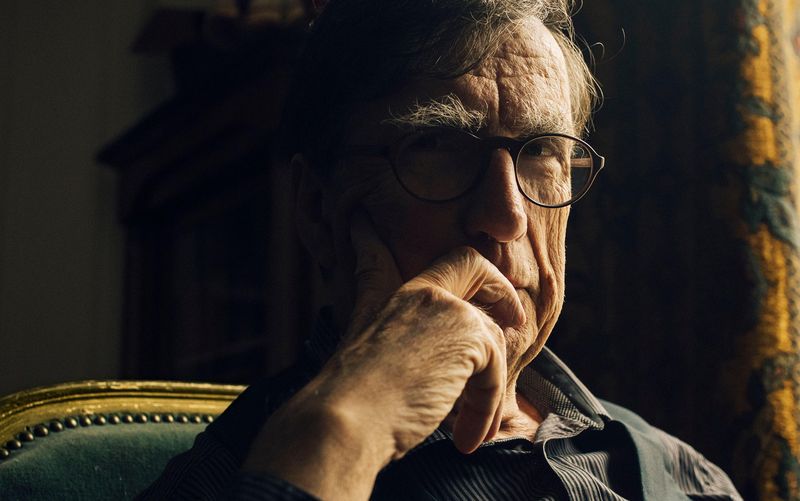
Past experiences can leave marks, and betrayals often lead to a more guarded approach to relationships. Older men who have faced deceit may find themselves building emotional walls to protect against future hurts.
This guardedness isn’t about shutting others out; it’s a form of self-preservation. It’s an acknowledgment that vulnerability has its costs, and trust must be earned.
Rather than exposing themselves to potential pain, they choose to tread carefully, valuing privacy and caution in their interactions. The lessons learned from past betrayals shape their social lives, leading to more selective and mindful connections with others.
7. He prefers peace over noise

In a noisy world filled with constant stimulation, peace becomes a precious commodity. Older men often seek out the tranquility found in solitude or nature, away from the hustle and bustle of social gatherings.
The quiet moments allow them to reflect, unwind, and enjoy the simple pleasures of life without the chaos that crowds can bring.
Choosing peace over noise isn’t about avoiding social interaction; it’s about finding balance and rejuvenation. These men appreciate the serenity that comes with being alone, where they can hear their thoughts and connect with the world at a pace that suits them.
It’s a deliberate choice to prioritize calm over chatter.
8. He’s been burned by being too open

Being open and vulnerable can sometimes lead to painful consequences. Older men who have shared their hearts only to be misunderstood or taken advantage of might choose to keep their thoughts and feelings to themselves.
This restraint isn’t about fear but about wisdom gained through experience. They know that not everyone will appreciate their openness, and they prefer to reserve their deeper selves for those who truly understand and value them.
In a culture that often prizes superficiality, this choice to remain guarded protects them from unnecessary hurt, allowing them to maintain control over who they let into their inner world.
9. He finds more comfort in routine than random outings

The comfort of routine can be a soothing balm in a world full of uncertainties. Older men often thrive on the predictability of daily habits, finding solace in knowing what’s coming next. Random outings might disrupt this sense of order, bringing unexpected challenges and stresses.
In their familiar surroundings, they can relax, unwind, and focus on the things they love without the pressure of social obligations. Their home becomes a sanctuary, a place where they can be themselves without the need for pretense or adaptation.
This preference for routine over randomness is not about avoiding adventure but about cherishing stability and the peace it brings.
10. He’s sick of being misunderstood

Misunderstandings can lead to frustration, especially when one feels repeatedly misinterpreted. Older men who have faced this in social settings may choose to step back, preferring solitude over the risk of being misjudged.
The struggle to communicate their thoughts and emotions accurately can become wearisome. It’s not about giving up but about finding peace in spaces where they are not constantly questioned or misconstrued.
This choice allows them to be themselves without the burden of having to constantly explain or defend their actions and words. In solitude, they find acceptance and understanding, even if it’s only from within.
11. He’s had to carry too many emotional loads
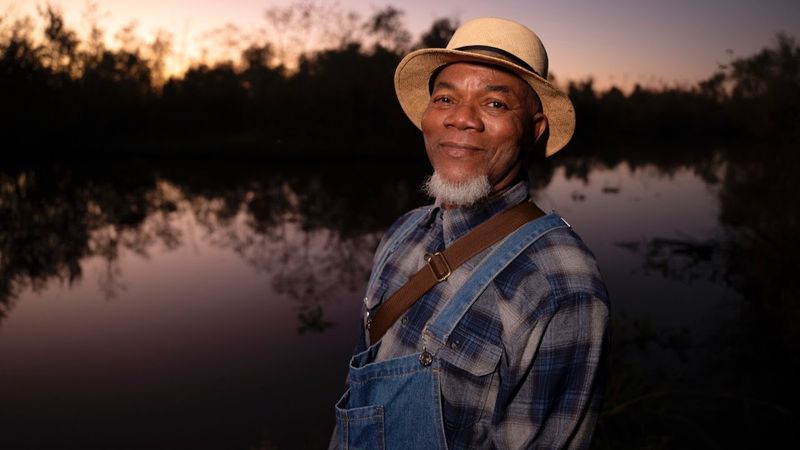
Life brings its share of emotional burdens, and for many older men, these have piled up over the years. Family responsibilities, friendships, and personal struggles can weigh heavily, leading them to seek respite from social demands.
The desire to lighten these loads often means choosing solitude, where they can process emotions without the added pressure of social obligations.
It’s not about avoiding people but about preserving mental and emotional well-being. By stepping back from social interactions, they create space for healing and reflection, allowing themselves to recharge and regain their balance.
12. He doesn’t feel like he fits in anymore

A sense of belonging is crucial, yet some older men find themselves feeling out of place in social gatherings. The world changes, and with it, the dynamics of social interactions.
For those who feel disconnected, participating in social events can be daunting. It’s not about being unwilling to engage but about feeling like an outsider in a space that no longer resonates with their values or interests.
This disconnect can lead to a preference for solitude or smaller, more intimate gatherings with those who share their perspective. Finding where they fit becomes a personal journey, often leading them to forge new paths outside conventional social norms.
13. His interests don’t match the crowd’s vibe

Interests evolve, and for many older men, hobbies and passions may no longer align with those of mainstream social circles. Whether it’s a love for classic literature, vintage cars, or quiet evenings at home, these interests often differ from the hustle of contemporary social events.
Rather than forcing themselves to fit into settings that don’t resonate, they choose spaces that reflect their true passions.
The library, a workshop, or a nature trail may become their preferred venues, offering fulfillment and joy without the distraction of clashing interests.
Embracing what they love, these men find contentment away from the crowd’s vibe, pursuing what truly brings them joy.
14. He’s focused on quality over quantity
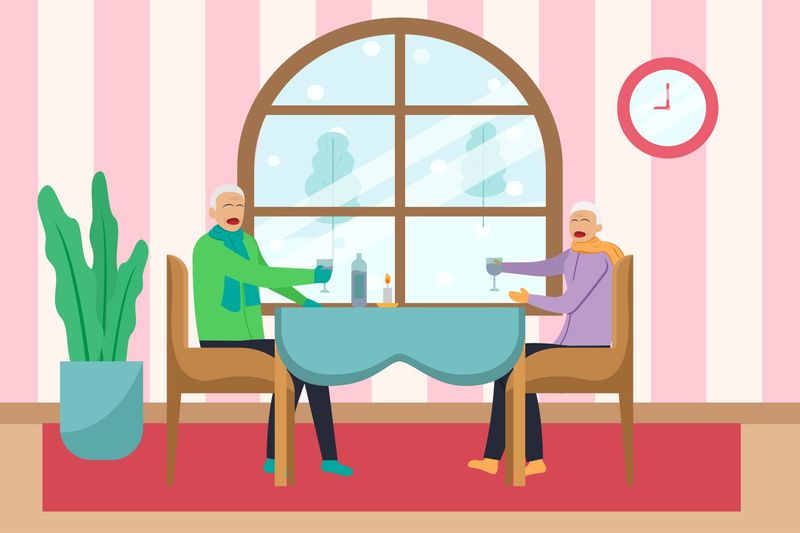
Quality often trumps quantity for older men when it comes to social interactions. They’ve learned that a few meaningful conversations can be more satisfying than countless superficial ones.
This focus on depth allows them to engage fully with those who matter, nurturing connections that are genuine and fulfilling.
It’s not about avoiding contact but about choosing encounters that enrich their lives rather than drain them. The pursuit of quality over quantity leads to more deliberate, thoughtful socializing, where each interaction holds value and significance. This preference shapes their social world, fostering connections that truly resonate.
15. He’s okay being alone with his thoughts

Solitude can be a friend, and many older men find comfort in being alone with their thoughts. It’s a time to reflect, ponder, and engage with themselves in a way that social settings often don’t allow.
Being alone doesn’t equate to loneliness; rather, it’s an opportunity to explore inner landscapes, dreams, and ideas without distraction.
In these moments of quiet contemplation, they find clarity, inspiration, and peace. The world outside may be bustling, but within this solitude, they find a sanctuary where they can be themselves, embrace their individuality, and nurture their inner world.
16. He struggles with anxiety—though he may not say it

Anxiety can be an unspoken barrier that keeps older men from fully engaging in social activities. The fear of judgment, the pressure to perform, or the sheer overwhelm of crowds can trigger anxious feelings that make socializing daunting.
It’s not always easy to express this struggle, especially in a world that often overlooks the emotional challenges men face.
By stepping back from social engagements, they protect themselves from situations that exacerbate their anxiety, choosing comfort and safety over stress.
Understanding this silent struggle allows for more empathy and support, creating spaces where they can feel secure and accepted.
17. Social settings feel performative
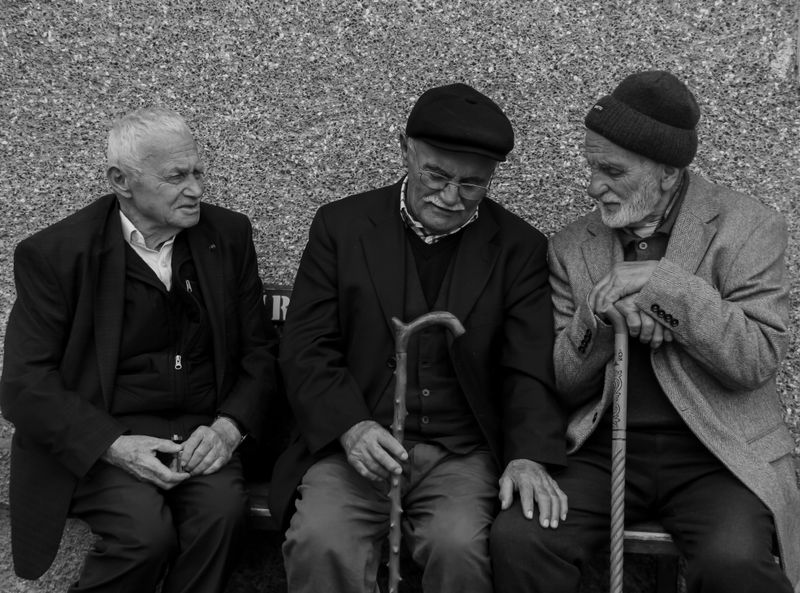
The pressure to conform to social norms can make gatherings feel more like performances than genuine interactions. For some older men, this performative aspect becomes exhausting, leaving them longing for more authentic connections.
Being oneself in a world that often demands pretense can be challenging, and this awareness leads to a preference for environments where they can be authentic without judgment.
Choosing solitude or small, intimate gatherings allows them to escape the superficiality that often accompanies larger social settings. It’s about seeking spaces where they can truly relax and engage without the need to perform.
18. He values silence more than small talk

In a world filled with chatter, silence can be golden. Older men often find solace in quiet moments where they can escape the noise of meaningless conversation.
It’s not that they dislike talking; they simply appreciate the beauty of silence and what it offers—a chance to recharge, reflect, and connect with themselves.
In silence, they find space to think, dream, and be without the constant interruption of small talk. This appreciation for quiet doesn’t mean they’re anti-social; rather, it shows a deep understanding of the value of peace in a noisy world.







